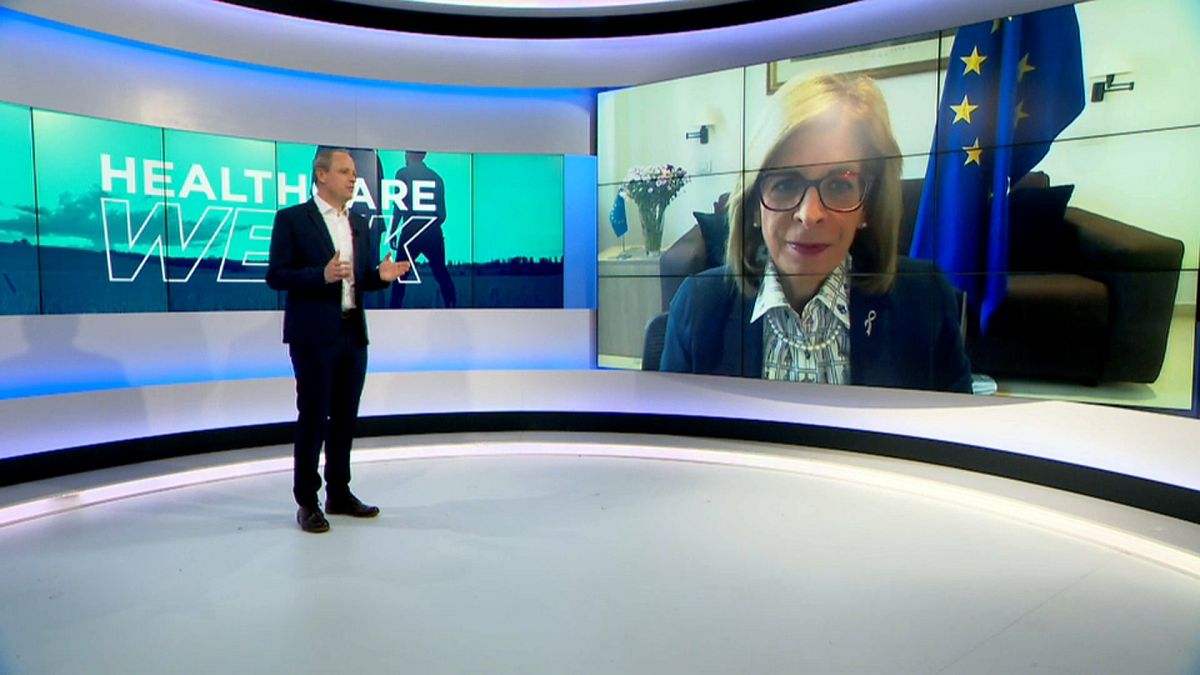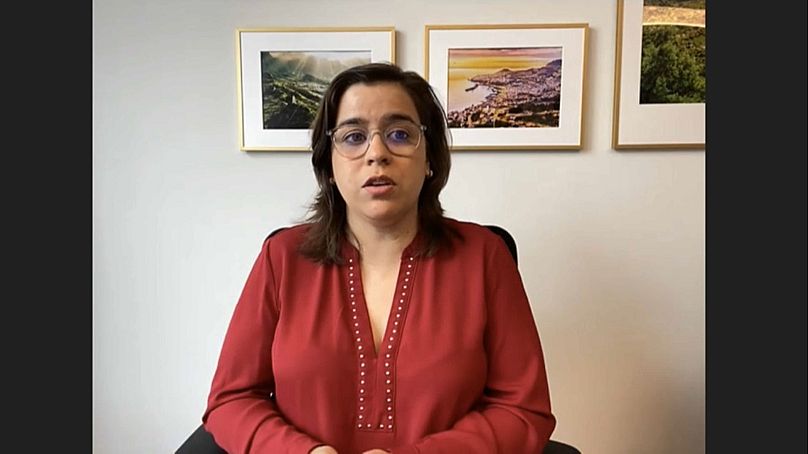EU4Health is the biggest financed health programme ever. It's an EU initiative to improve health systems across the bloc and make them ready for any further health crisis. Its EU rapporteurs tell us what it's all about.
The EU4Health programme is one of the European Union's responses to the COVID-19 pandemic.
With total funding of 5.1 billion euros, it is the largest ever health programme in monetary terms. One of its aims is to help the bloc be prepared for cross-border health threats, such as coronavirus.
To achieve that goal, the programme is looking to increase medical supplies for eventual pandemics, create reserves of medical staff and experts, and improve the surveillance of health risks.
As well as these objectives, EU4Health wants to strengthen existing healthcare systems and make medicine and medical machines affordable and accessible.
However, according to the European Commission, EU4Health is not just about improving healthcare systems for pandemics. It also wants to focus on other pressing health issues like cancer treatment, anti-microbial resistance and improving vaccination rates.
EU4Health will also be financially assisted by other EU programmes, such as the ESF+, Horizon Europe and Digital Europe.
What are the spending priorities of EU4Health?
European Commissioner for Health, Stella Kyriakides, told Euronews that the new programme aims to build "resilience of health systems" by "strengthening the mandate of the European Centre for Disease Prevention and Control (ECDC), and the European Medicines Agency (EMA), and also focusing on areas such as Europe's Beating Cancer plan, and the new pharmaceutical strategy".
Embracing technology to improve health
The pandemic has taught Europe and the world just how important strong and efficient healthcare systems are. The creation of a secure digital space to share health data across borders is also a key part of the EU's vision.
According to Kyriakides, the EU Commission is looking to use health data in a safe, protective way, "in order to be able to increase access to health services, patient care, and optimise the use of data in the area of health".
"The potential for this, for the use of artificial intelligence (AI), is enormous," she adds.
Véronique Trillet-Lenoir is a French MEP and rapporteur for the EU4Health programme. She too believes in the potential of AI.
To her, the way forward is for medical and scientific data to be compiled into big data and analysed by artificial intelligence, "to allow everyone to benefit from medical advances that are better adapted to the individual," she explains
Trillet-Lenoir says that this course of action would also help with EU4Health's other goal of improving cancer treatment.
So what changes does she imagine that Europeans can expect to see in the next five years?
"I would like you to see action in prevention, not only crisis prevention, but also prevention of major public health scourges, such as smoking and physical inactivity", she tells Euronews.
"These are risk factors that are important, for example in the fight against cancer, exposure to environmental toxic substances, exposure at work, etc. These are therefore preventive and educational actions that should bear fruit and which are easily measurable," she concludes.
Removing inequalities
Romanian MEP and rapporteur for EU4Health, Cristian-Silviu Bușoi also sees technology as a way to make Europe's healthcare more equitable.
He gives the example of people in rural areas with complicated illnesses who struggle to access the most modern healthcare usually found in larger cities.
"[These people] could be consulted by a professor from a big university hospital via telemedicine," Busoi explains.
"Artificial intelligence and 5G will change a lot how medicine will work in the future," he adds.
Questions over the risks of digitisation
Healthcare in Europe lags well behind other sectors such as financial services, but this is likely to change, with an effort to create a common European digital health space to share information and fight infectious and non-infectious diseases. However, as with banking, a big focus will be on keeping data secure, and anonymous when necessary.
Asked about the worries over hacking of health data, Commissioner Kyriakedes told Euronews that privacy and security were never negotiable. "It is something which is paramount. Citizens need to feel that they can have trust in this, and the European health data space will safeguard this," she said.
"We need to make health data more accessible, but we also need to assure citizens that no way will their confidentiality, their personal data be compromised," she said.
The coronavirus pandemic has accelerated certain aspects of the digital health space, with Bușoi giving the example of what's happening in his home country.
"A part of the resilience and recovery funds that are devoted to Romania go to digital solutions, and a lot of this will go to digitalise the health care sector, the National Health Insurance Council, and also to give hospitals money in order to use telemedicine, to have digital call centres able to access the history of the patients in the digital format," he tells Euronews. "And I'm sure that many, many member states will use this opportunity, will use the resilience of recovery funds in order to digitalise better their healthcare systems."
MEPs applaud 'Health-in-all-policy' approach
Sara Cerdas, shadow rapporteur for the EU4Health programme, says health is now part of every policy decision in Europe. She says Europeans will see the direct and indirect consequences for health in each piece of legislation.
According to Cerdas, the new programme will "reduce the health inequalities across the European Union".
The EU Commission welcomed the entry into force of the EU4Health programme on the 26th of March and applications for funding are now open.
This story is part of a series of healthcare-related articles that Euronews will publish between March 29 and April 2.

